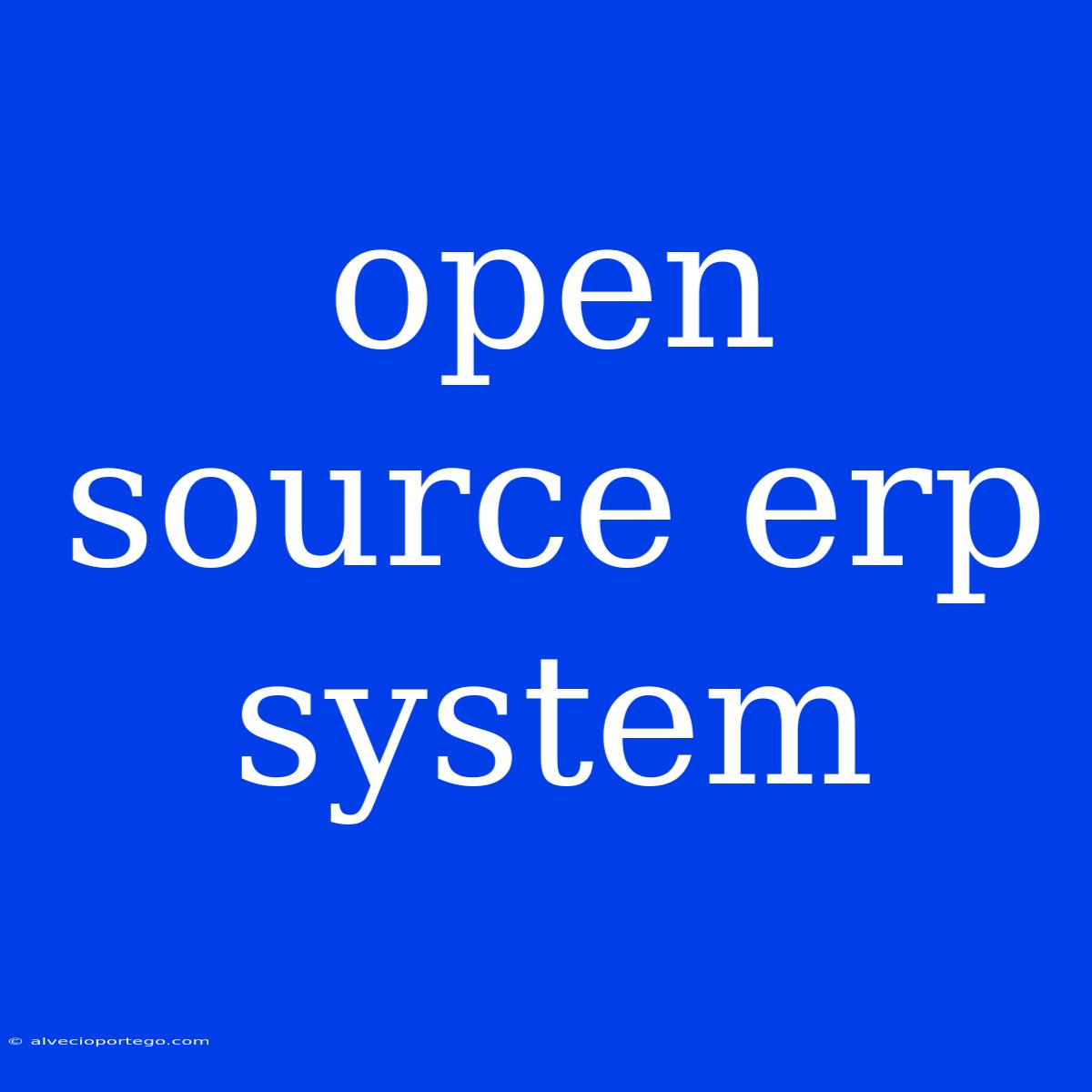Open Source ERP Systems: A Comprehensive Guide
Open source ERP systems have gained significant traction in recent years, offering businesses of all sizes a cost-effective and flexible alternative to traditional proprietary solutions. But what exactly are they, and why should you consider using one?
What is an Open Source ERP System?
Open source ERP software is developed and maintained by a community of developers and users, rather than a single company. The source code is freely available, meaning users can:
- Customize and modify the system: This empowers businesses to tailor the software to their specific needs, unlike proprietary systems that offer limited customization options.
- Contribute to the development: Users can contribute to the improvement of the software by submitting bug fixes, feature requests, and even new code.
- Reduce costs: Open source ERP systems generally have lower licensing fees or are completely free to use, making them accessible to businesses with limited budgets.
Benefits of Using Open Source ERP Systems
1. Flexibility and Customization: The ability to modify the source code allows you to create a system that perfectly aligns with your business processes and workflows.
2. Reduced Costs: Lower licensing fees and the ability to use free community support can significantly reduce your overall ERP implementation cost.
3. Enhanced Security: Open source systems benefit from the collective efforts of the developer community, ensuring continuous security updates and vulnerability patches.
4. Community Support: A large and active community of users and developers offers valuable support, resources, and knowledge sharing, enhancing your learning and problem-solving capabilities.
5. Transparency: Access to the source code provides complete transparency, allowing you to understand how the system works and ensuring a higher level of trust.
Popular Open Source ERP Systems
Several excellent open source ERP systems are available, each with its unique strengths and features. Some popular choices include:
- Odoo: A comprehensive suite of applications covering various business functions like CRM, inventory, accounting, manufacturing, and more.
- Dolibarr: A versatile system designed for small and medium-sized businesses, offering modules for accounting, CRM, project management, and more.
- ERPNext: A feature-rich ERP system with strong capabilities for manufacturing, inventory management, and e-commerce.
- Compiere: A well-established ERP system built on Java, known for its customization capabilities and scalability.
Choosing the Right Open Source ERP System
Choosing the right open source ERP system for your business depends on several factors:
- Your specific needs and requirements: Consider the business functions you need, the size of your company, and your level of customization needs.
- Available resources: Assess your team's technical expertise and the resources you can dedicate to implementation and ongoing maintenance.
- Community support: Research the active community surrounding each system to ensure you have access to adequate support and resources.
Conclusion
Open source ERP systems provide businesses with a powerful and cost-effective alternative to traditional proprietary solutions. They offer flexibility, customization, reduced costs, and access to a vibrant community of users and developers. By carefully evaluating your specific needs and researching available options, you can choose an open source ERP system that can help your business thrive in the digital age.

